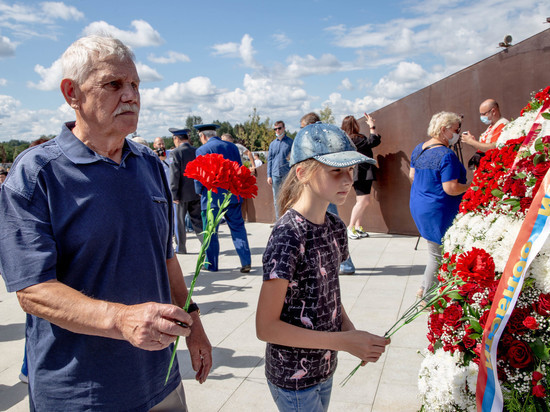Patriotism needs no explanation.
On August 9, search engine detachments arrived from many regions of the country to the Rzhevsky region. Here, near the village of Yesemovo, a military-patriotic camp has grown up, designed to become the center of search work of all-Russian importance.
Its opening was the result of many years of cooperation between the Tver region and Yakutia. About two thousand natives of the republic fought in the Battle of Rzhev, and a memorial was built in their memory in 1994 in the village of Filkino. Later, a chapel-temple was erected next to it. And now – the search engine camp, as a continuation of the military-patriotic expedition “Rzhev. Kalinin Front “.
The head of the Dolina search expedition from Veliky Novgorod, Igor Neofitov, and his team were invited by Yakut friends. The search engines are directly related to the perpetuation of the memory of the Yakut riflemen on the territory of the Novgorod region: these soldiers were part of the ski brigades who died in the area of Lake Ilmen. There are now two memorials dedicated to them.
The Dolina Association includes 65 detachments from more than 30 regions of the country, as well as from Kazakhstan, the Baltic states, and Ukraine. It includes one and a half thousand permanent search engines. For 30 years, they have found and buried the remains of more than 115 thousand soldiers and commanders of the Red Army, identified the names of more than 22 thousand defenders of the Fatherland.
“After a person“ raises ”his first soldier, he no longer needs to explain what patriotism is,” says Vladimir Barsukov, head of the search department of the “Combat Brotherhood” volunteer company.
Among the guests were people who begin their story with words of gratitude to the search engines. One of them, the grandson of the legendary scout Mikhail Anikanov, the hero of the story “Star” by Emmanuil Kazakevich, flew in from Siberia. In the village of Demyakhi, Belsky district, where almost five thousand soldiers of the Red Army are buried, Mikhail Anikanov also lies. He died in November 1942, but only now his grandson Vitaly was able to see his grave, lay flowers, plant mountain ash. He did not come alone – with his granddaughter, high school student Anya: “So that she knows, her children and grandchildren. To understand at what cost the Victory was given. “
The 1941 call went to Moscow and the Volkhov front to defend Leningrad. Residents of the Rzhevsky district recalled how happy they were when they saw these large men in white sheepskin coats. Only 80% of that call home never returned. Their loved ones received a funeral, where it was written: “Killed near Rzhev.” But the battlefield is huge. Fraternal graves are scattered throughout the district, many villages are not there today, for example, only the memorial complex remained from the village of Ploskoye.
As the first deputy chairman of the government of Yakutia, Andrei Fedotov, noted, the camp bears the name of the Hero of the Soviet Union sniper Fedor Okhlopkov, who liberated Kalinin, Rzhev, Smolensk. He and his comrades won the Victory, the modern symbol of which is the memorial to the Soviet soldier.
